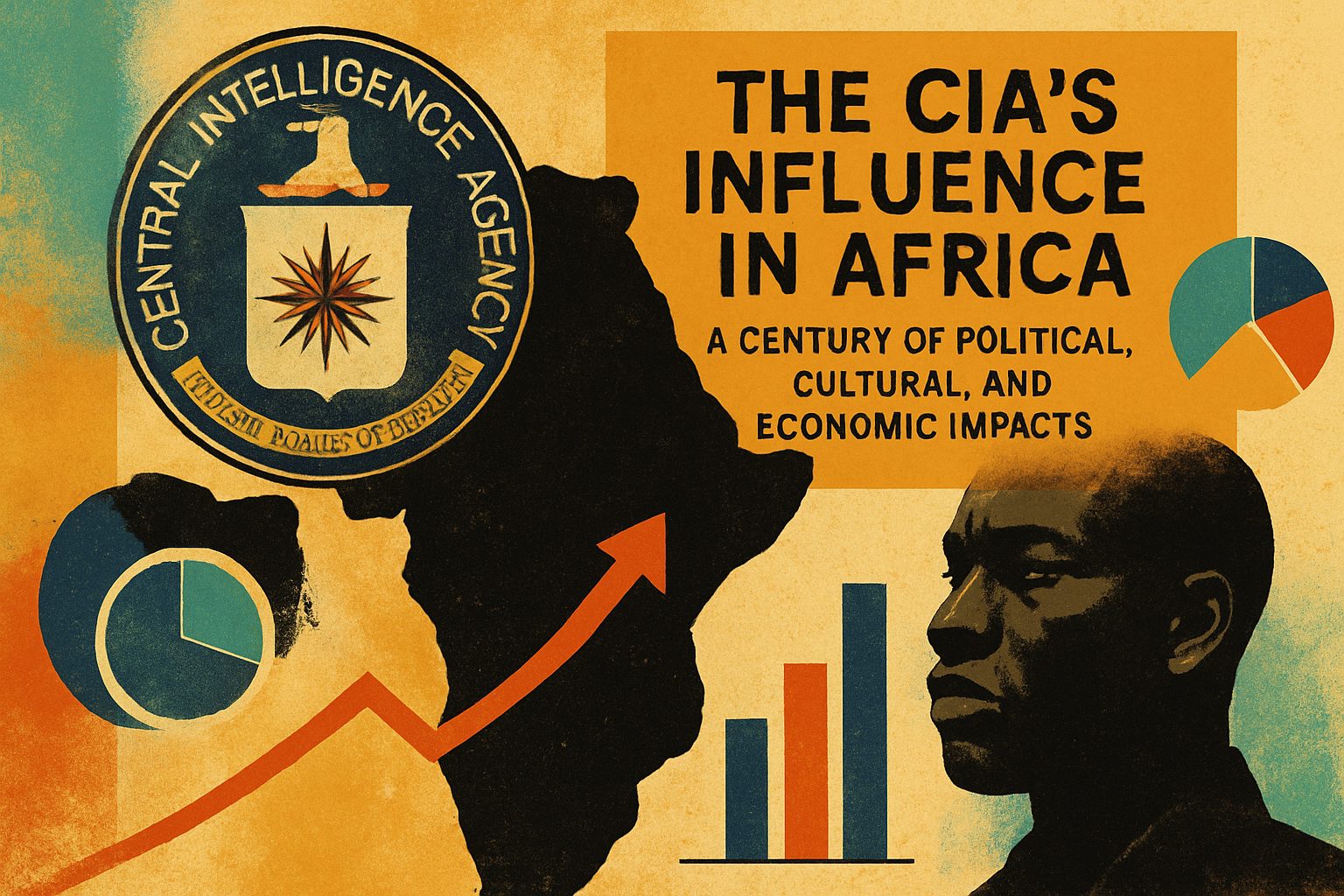
Unveiling the CIA’s Century-Long Influence in Africa: Political, Cultural, and Economic Impacts Revealed
Delve into a comprehensive analysis of how the CIA has shaped Africa’s trajectory over the past 100 years through covert operations and strategic interventions. This article uncovers the controversial impacts on sovereignty, stability, and development, backed by historical evidence and charts.

Thesis & Position
The Central Intelligence Agency (CIA) has exerted profound and multifaceted influence across African nations over the past century, primarily through covert operations, political manipulation, and economic interventions designed to advance U.S. strategic interests. This influence has significantly shaped Africa’s political landscapes, cultural development, and economic trajectories—often with controversial consequences for sovereignty, stability, and long-term development.
Evidence & Facts: Historical Context and Operations
Cold War Era Interventions
During the Cold War, Africa became a critical theater for superpower competition. The CIA’s operations were designed to counter Soviet influence and secure strategic resources:
-
Angolan Civil War (1975-2002): The CIA provided substantial support to UNITA rebels against the Soviet-backed MPLA government, contributing to one of Africa’s longest and most devastating conflicts. Documents from the Digital National Security Archive reveal extensive covert funding and arms transfers.
-
Congo Crisis (1960-1965): The CIA played a pivotal role in the assassination of Patrice Lumumba (1961) and subsequent support for Mobutu Sese Seko’s regime, prioritizing anti-communism over democratic development.
-
Ethiopian and Somali Proxy Conflicts: The agency supported various factions in the Horn of Africa, often exacerbating regional tensions.
Post-Cold War Continuity
Contrary to popular assumption, CIA activities in Africa did not diminish after the Cold War. According to analysis from Okay Africa, operations continued adapting to new security paradigms:
-
Counterterrorism Operations: Post-9/11, the CIA expanded operations across the Sahel region and East Africa, often working with authoritarian regimes in exchange for counterterrorism cooperation.
-
Resource Security Operations: Covert actions in oil-rich nations like Nigeria and mineral-rich regions like the Democratic Republic of Congo have continued, focusing on securing U.S. corporate interests.
-
Surveillance and Drone Programs: Extensive electronic surveillance and targeted drone strikes have become hallmark features of contemporary CIA operations in Africa.
Critical Analysis: Weighing Perspectives and Impacts
Political Impacts
The CIA’s political interventions have produced complex, often contradictory outcomes:
| Aspect | Positive Claims | Critical Perspectives | Evidence |
|---|---|---|---|
| Regime Stability | Prevented communist takeovers | Installed authoritarian regimes | CIA documents show support for dictators |
| Democratic Development | Contained expansionist powers | Undermined democratic movements | Overthrow of elected leaders in multiple countries |
| Sovereignty | Protected from Soviet influence | Violated national self-determination | Documented interference in 20+ African nations |
The fundamental tension lies between strategic security interests and respect for national sovereignty—a balance rarely achieved in practice.
Economic Impacts
Economic interventions have created paradoxical outcomes:
- Short-term stabilization often came at the cost of long-term dependency
- Resource extraction agreements benefited U.S. corporations while limiting local economic development
- Structural adjustment programs influenced by CIA intelligence often prioritized debt repayment over social spending
Cultural Impacts
The CIA’s cultural influence operations, including media manipulation and educational programs, have shaped:
– Anti-communist narratives that persist in African political discourse
– Western-oriented elite formation through educational exchanges
– Media landscapes through covert support for friendly outlets
Logical Reasoning: Assessing Strategic Approaches
When evaluating the CIA’s Africa operations, several logical frameworks emerge:
Realpolitik vs. Ethical Interventionism
The tension between these approaches explains many contradictory outcomes:
- Realpolitik justification: In a bipolar world, preventing Soviet expansion justified extreme measures
- Ethical limitations: The means often undermined the ends, creating long-term instability
- Practical consequences: Short-term victories frequently created long-term problems
Cost-Benefit Analysis
A rational assessment suggests:
– Tactical successes in containing Soviet influence
– Strategic costs in terms of anti-American sentiment and persistent instability
– Opportunity costs of alternative approaches based on development rather than containment
Historical Progression: Visualizing a Century of Influence